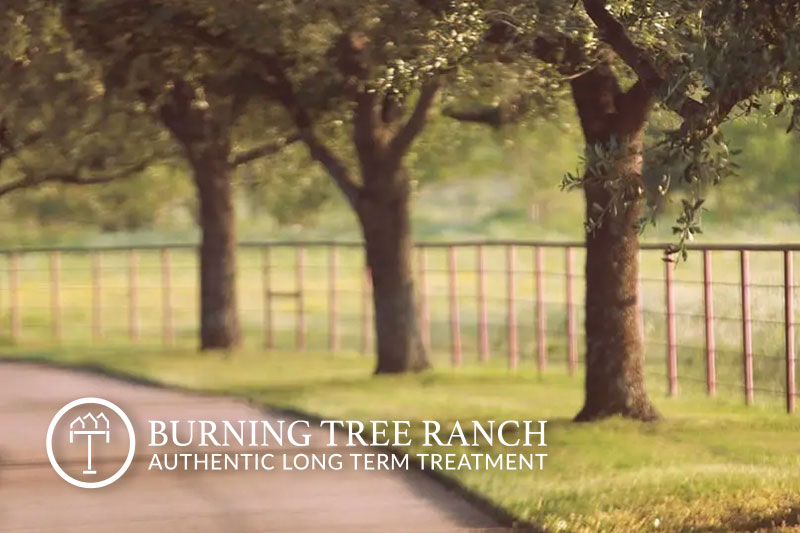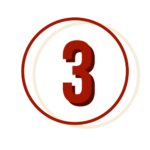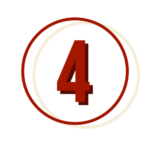Substance / Medication-Induced Anxiety Disorder & Substance Abuse in a Dual Diagnosis
Substance/Medication-Induced Anxiety Disorder, as defined in the DSM-5, highlights the significant impact of substances and medications on anxiety levels, distinguishing it from other anxiety disorders with its direct link to substance use or withdrawal.
This condition necessitates a deep understanding of the substances involved, their potential for addiction, and the importance of careful management, especially in individuals with a history of substance abuse.
Substance & Medication-Induced Anxiety Disorder: Using The DSM-5
Substance/Medication-Induced Anxiety Disorder, as outlined in the Diagnostic and Statistical Manual of Mental Disorders, Fifth Edition (DSM-5), is a condition characterized by significant anxiety symptoms that are a direct consequence of substance use, withdrawal, or exposure to medication. This disorder is distinguished by the presence of anxiety that is excessively severe or prolonged compared to the expected effects of the substance or withdrawal.

Recognizing Symptoms
The primary symptoms include intense anxiety, panic attacks, or phobias that are not typical of the individual’s baseline psychological state. These symptoms must be clinically significant, causing marked distress or impairment in social, occupational, or other important areas of functioning. The onset, or significant exacerbation, of these symptoms must be directly related to the substance use, intoxication, or withdrawal.
Identifying the Causes
Various substances can induce anxiety symptoms, each affecting the central nervous system differently, and include:
- Stimulants: Cocaine, amphetamines, many ADHD medications and caffeine can induce anxiety symptoms by increasing the body’s level of norepinephrine and dopamine, leading to heightened alertness and arousal.
- Alcohol: Both the intoxication and withdrawal phases can cause anxiety. Alcohol withdrawal can disrupt the balance of neurotransmitters, leading to increased nervous system activity.
- Cannabis: While some individuals use cannabis for its calming effects, others may experience increased anxiety and panic due to its psychoactive properties.
- Hallucinogens: Drugs like LSD and psilocybin can cause profound alterations in perception, mood, and thought, leading to anxiety or panic.
Forming a Diagnosis
For a diagnosis of Substance/Medication-Induced Anxiety Disorder, the DSM-5 requires:
- Evidence from the individual’s history, physical examination, or laboratory findings of both (1) symptoms of anxiety developed during or soon after substance intoxication or withdrawal or after exposure to a medication, and (2) the involved substance/medication is capable of producing the symptoms.
- The disorder does not occur exclusively during delirium and is not better accounted for by another anxiety disorder, which would not have happened in the absence of the substance.
Understanding Why Substances Cause Symptoms
The substances associated with this disorder can alter normal brain function through various mechanisms, such as disrupting neurotransmitter levels, affecting brain regions involved in anxiety regulation (like the amygdala and prefrontal cortex), and altering hormonal balance. The specific reaction can depend on individual factors, including genetics, existing mental health conditions, and the amount and duration of substance use.
Prescription Medications The Link to Anxiety Disorders
Substance/Medication-Induced Anxiety Disorder can be related to several classes of prescription medications known for their addictive potential. A segmented list by class is presented here, highlighting generic and brand names, but it should not be viewed as complete.
For individuals with a substance abuse diagnosis or history, using these medications increases the risk of relapse, dependency, and exacerbation of Substance / Medication-Induced Anxiety Disorder. Their addictive properties can worsen addiction, making careful assessment and alternative treatments vital for managing both the primary condition and preventing further substance misuse.

Opioids
- Hydrocodone (Vicodin, Lortab, Norco)
- Oxycodone (OxyContin, Percocet)
- Fentanyl (Duragesic, Sublimaze, Actiq)
- Morphine (MS Contin, Morphabond)
- Codeine (found in various combination medications)

Benzodiazepines
These medications are commonly used to treat anxiety, insomnia, and seizure disorders.
- Alprazolam (Xanax)
- Clonazepam (Klonopin)
- Diazepam (Valium)
- Lorazepam (Ativan)
- Temazepam (Restoril)

Stimulants
Stimulant medications are commonly used to treat ADHD and narcolepsy.
- Amphetamine/Dextroamphetamine (Adderall)
- Methylphenidate (Ritalin, Concerta)
- Dextroamphetamine (Dexedrine)
- Lisdexamfetamine (Vyvanse)

Barbiturates
These medications are used less commonly due to the high risk of overdose for seizure disorders and insomnia.
- Phenobarbital (Luminal)
- Pentobarbital (Nembutal)

Z-Drugs
Often used to treat insomnia and sleep disorders, but they have a potential for dependence.
- Zolpidem (Ambien)
- Zaleplon (Sonata)
- Eszopiclone (Lunesta)

Other Medications
- Pregabalin (Lyrica) – Used for neuropathic pain and fibromyalgia, has the potential for misuse.
Distinguishing Substance-Induced Anxiety from Common Anxiety Disorders
Substance/Medication-Induced Anxiety Disorder is often mistakenly diagnosed as other mental health conditions due to the overlap in symptoms. Common misdiagnoses include:
- Generalized Anxiety Disorder (GAD): Both conditions involve excessive worry and anxiety. However, in Substance/Medication-Induced Anxiety Disorder, these symptoms are directly linked to substance use or withdrawal, unlike GAD, which lacks this causality.
- Panic Disorder: Symptoms like panic attacks can occur in both disorders. The key difference is that panic attacks in Substance/Medication-Induced Anxiety Disorder are a direct result of substance use or withdrawal.
- Social Anxiety Disorder: Increased anxiety in social situations may be present in both conditions. However, Substance/Medication-Induced Anxiety Disorder’s social anxiety symptoms are specifically related to the effects of substances or medication.
Arriving at the Proper Diagnosis Using the DSM-5
Clinicians rely on the DSM-5 criteria to differentiate Substance/Medication-Induced Anxiety Disorder from other anxiety disorders. Key steps include:
- Assessment of Substance Use History: Clinicians carefully review the individual’s substance use history, including prescription medications, to identify any temporal relationship between substance use and the onset of anxiety symptoms.
- Evaluation of Symptoms: The DSM-5 requires that the anxiety symptoms are more than what would be expected from the intoxication or withdrawal effects of the substance. This involves determining if the symptoms are more severe, prolonged, or of a different nature than those typically associated with substance use or withdrawal.
- Exclusion of Other Causes: Clinicians must rule out that another anxiety disorder better explains the anxiety symptoms. This involves assessing whether the symptoms persist beyond the expected duration of substance intoxication or withdrawal and whether there’s a history of anxiety disorders independent of substance use.
- Consideration of Medical Conditions: The DSM-5 criteria also necessitate ruling out that the symptoms are attributable to another medical condition or are better explained by another mental disorder.
Through a thorough clinical interview, detailed substance use history, and careful application of DSM-5 criteria, clinicians can differentiate Substance/Medication-Induced Anxiety Disorder from other anxiety disorders, ensuring that individuals receive accurate diagnoses and appropriate treatment.
The Facts: Misconceptions About Substance & Medication-Induced Anxiety Disorder
Misconception #1: Substance/Medication-Induced Anxiety Disorder is not an actual anxiety disorder.
- This condition is recognized as a legitimate diagnosis in the DSM-5. It specifies that anxiety symptoms can directly result from substance use, withdrawal, or exposure to medication. Unlike transient anxiety experienced by many individuals following substance use, this disorder involves clinically significant distress or impairment, distinguishing it as a natural and diagnosable anxiety disorder.
Misconception #2: Only illegal drugs can cause Substance/Medication-Induced Anxiety Disorder.
- A wide range of substances, including legal prescription medications such as benzodiazepines (e.g., Xanax, Valium), opioids (e.g., Oxycodone), and even over-the-counter medications like certain cold medicines, can induce anxiety symptoms. The disorder is not limited to the use of illegal drugs; it encompasses any substance that chemically alters brain function, leading to anxiety symptoms.
Misconception #3: Symptoms of Substance/Medication-Induced Anxiety Disorder will immediately disappear once the substance is stopped.
- While symptoms may diminish following cessation of the substance, the process is not always immediate. Depending on the substance involved and the duration of use, anxiety symptoms can persist for weeks or even months after stopping. This prolonged effect underscores the need for professional treatment and support during recovery, as well as the importance of addressing any underlying mental health conditions that may have been masked or exacerbated by substance use.
Correcting the record of Substance/Medication-Induced Anxiety Disorder is vital for proper diagnosis and management. By clarifying its actual impact and diverse causes, we empower individuals and healthcare providers to pursue targeted, effective treatment strategies and support long-term recovery and mental health well-being.
Recognizing the Potential for Addiction
Final Words for Families Considering Long-Term Treatment
Substance & Medication-Induced Anxiety Disorder, as defined in the DSM-5, highlights the significant impact of substances and medications on anxiety levels, distinguishing it from other anxiety disorders with its direct link to substance use or withdrawal.
This condition necessitates a deep understanding of the substances involved, their potential for addiction, and the importance of careful management, especially in individuals with a history of substance abuse. It underscores the need for healthcare professionals to carefully assess and choose treatments that avoid exacerbating the disorder, emphasizing alternative approaches for those at risk.

